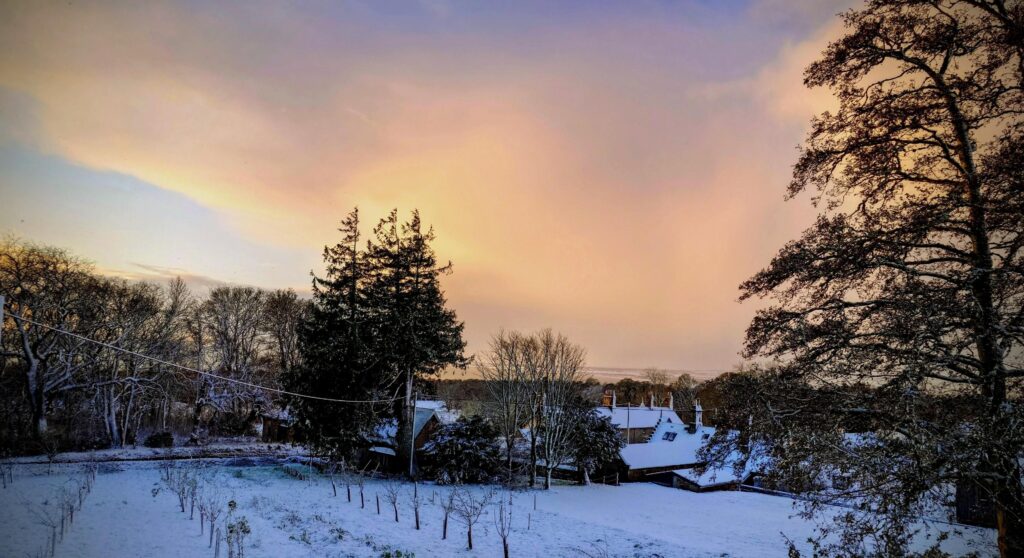The question of when winter begins is an intriguing topic, particularly with varying definitions depending on meteorological and astronomical perspectives. As the chill of freezing temperatures, snow-laden landscapes, and early sunsets wash over the UK, many may hastily claim that winter has indeed arrived. However, a closer inspection reveals that, according to the meteorological calendar, the onset of winter is not immediate. This year, autumn has been characterized by its stunning colors and volatile weather, showcasing everything from record warm nights in November to unexpected cold days reminiscent of more traditional winter.
For those adhering to the meteorological calendar in the UK, winter officially starts on December 1st and lasts until February 28th, which allows for smoother year-over-year comparisons. This fixed seasonal framework contrasts with the astronomical approach, where winter starts on December 21st, coinciding with the winter solstice—the shortest day of the year. Subsequently, this season continues until the arrival of the spring equinox, which in 2026 will occur on March 20th.
The atmospherics of winter in the UK typically invite cold temperatures and snowfall, particularly in December, January, and February—months that are often the coldest of the year. The stark contrast between the season’s temperatures can be vivid in the UK, as demonstrated by historical records. For example, the coldest temperature ever recorded in the UK reached -27.2°C, happening three times in Scotland, specifically in Braemar and Altnaharra. Furthermore, records of extreme lows include temperatures like -26.1°C in Newport, Shropshire, and -23.3°C in Rhayader, Powys. Contrarily, the nation occasionally experiences milder winters, leading some to feel as if winter has been entirely skipped. Instances worth noting include February 2019, when parts of England and Wales soared to over 20°C.
As we reflect upon these definitions, it becomes crucial to consider the impact of climate change on winter. The tendencies toward warmer and wetter winters have been increasingly documented and represent direct consequences of human actions influencing global temperatures. As per historical data, UK winters are about 1°C warmer on average compared to a century ago, and the decade spanning 2015 to 2024 is anticipated to show an increment of 1.24°C against the baseline from 1961 to 1990. Alarmingly, six of the ten warmest winters on record in the UK have taken place post-2000.
The alarming trend of rising temperatures has resulted in a notable decrease in occurrences of air and ground frost, which have dropped by approximately 25% since the 1980s. With this warming trend comes a shift in precipitation patterns, as more winter precipitation is anticipated to fall in the form of rain instead of snow, diminishing the quintessential imagery of winter landscapes graced by snow. Nevertheless, this does not preclude the UK from experiencing sudden and extreme winter weather systems, exemplified by the notorious “Beast from the East” in 2018, which brought severe winter conditions that dominated headlines across Europe.
To summarize, the onset of winter is a multifaceted subject that delves into meteorological definitions, historical records, and the complexities surrounding climate change. As seasonal temperatures fluctuate and weather patterns become more erratic, understanding when winter truly begins becomes essential not only for meteorological purposes but also for addressing wider climatic concerns and preparations for the seasons to come. The landscape of winter, while marked by tradition, continues to evolve in the face of climate change, necessitating an adaptive lens through which this pivotal season is viewed.










